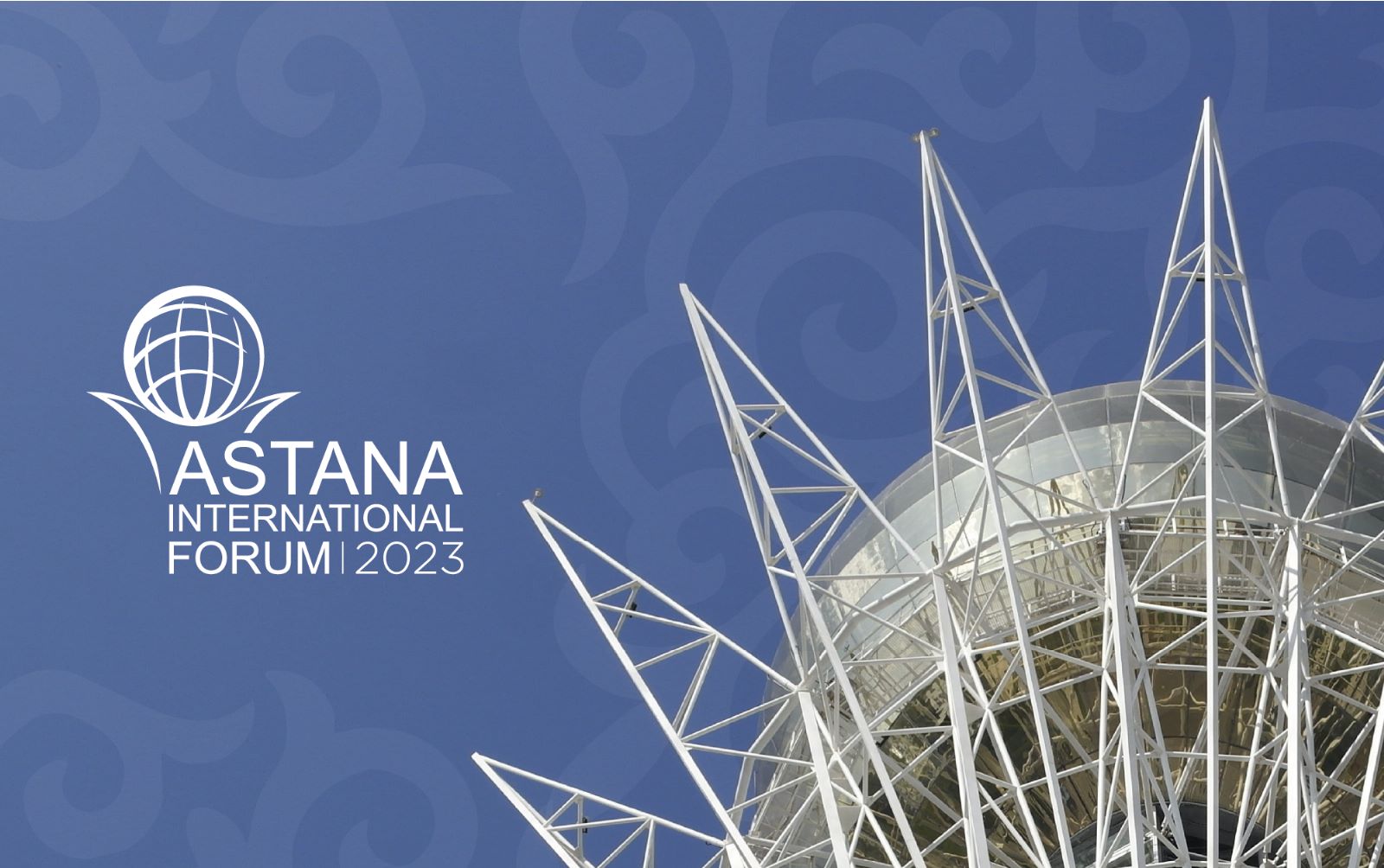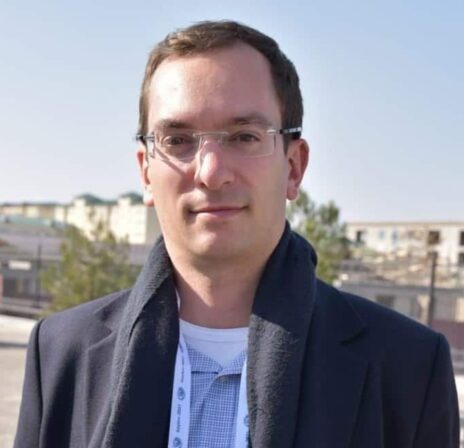A quick glance at the current state of the world and the global political and economic landscape may offer no immediate reasons for optimism. Great power relations continue to sharpen, protracted conflicts show no sign of abating, and the rules-based multilateral system faces an uncertain trajectory. On the geo-economic front, globalization is slowing, with some suggesting that we have entered a period of de-globalization. The progress made by several decades of increasing global economic integration and trade-led global growth is imperiled by rising trade tensions; the rising populistic appeal of protectionist policies in some corners of the world; and the disruption to global value and supply chains as a result of exogenous shocks such as the COVID-19 pandemic.

Official poster of Astana International Forum 2023.
But not all is doom and gloom. There is hope for the future of multilateralism and the rules-based global order. And the answers to it may not lie exclusively in Washington, Brussels and Beijing, but in capitals like Astana, Brasilia and Jakarta. As the great powers appear unable (or unwilling) to maintain strategic stability, middle powers may, in fact, be the best hope for a renewed multilateralism.

Alberto Turkstra.
While middle powers encompass a diverse group of countries (from Australia and Canada to South Africa, Türkiye and Kazakhstan), they share some common traits: their aversion to a zero-sum vision of the world and being caught in great power stand-offs; and a determination to chart an independent foreign policy course. These are countries with capabilities that cannot individually match those of great powers, yet can still shape outcomes by pooling resources and working through alliances and coalitions.
Middle powers in the 21st century are much more robust in terms of demographic, economic, and military size. They have sufficient economic and geopolitical clout not to be forced to bandwagon with a single superpower, as was often the case during the Cold War years. They are increasingly influential, self-confident, independent, with greater room for maneuvering. Their rising activism and presence on the world stage can contribute to global stability by providing additional sources of balancing, dialogue and diplomacy.
Kazakhstan belongs firmly in this category, in fact having consistently punched above its weight in terms of regional and global role and influence thanks to its carefully crafted multi-vector foreign policy.
In over three decades since its independence in 1991, Kazakhstan has leveraged its geostrategic location in the heart of Eurasia to become a regional hub for trade and commerce linking Europe and Asia. It is today one of the few countries with equidistant, stable and constructive relations with all global powers: China, the U.S., the EU and Russia. And while this policy has been tested a few times throughout its history, most recently in 2022 when many observers prematurely rushed to bury Kazakhstan’s multi-vectorism in the context of the tragic January events, it has proven a resilient, all-weather compass, guiding Kazakhstan through thick and thin.
It is in this context that the upcoming Astana International Forum will be held in June on the initiative of President Tokayev, as a platform to “resume political dialogue, drive positive change and shape the global agenda of cooperation.” The Forum will highlight “the need for a coordinated global response to economic, environmental, and security challenges.”
To be held in a Track 1.5 format, it will not only bring together representatives from government but also international organizations, business, and academia, to engage in a holistic dialogue and think “outside the box” in order to address climate, food scarcity, energy security challenges and how to better equip the institutions of global governance to address the emerging non-traditional security threats of the 21st century. It is important to also emphasize the non-exclusionary nature of the Forum – that is to say, everyone is welcome. In an already crowded calendar of annual international conferences and forums, these characteristics will enable the Astana Forum to stand out from the crowd and reduce the risk of becoming merely a “talking shop.”
Kazakhstan is the natural place for such a dialogue to take place. The country has a solid track record in facilitating and contributing to international mediations, including the Astana peace talks on Syria; and active involvement in negotiations on Iran’s nuclear programme and Afghanistan’s humanitarian crisis. It has also become a net contributor to international security through its participation in UN Peacekeeping Operations (UNPKOs) and its leadership in the field of nuclear disarmament. Astana itself has built a reputation as the capital of peace and dialogue, and is no stranger to hosting high-level events, such as the Astana Economic Forum, the Congress of Leaders of World and Traditional Religions and the Conference on Interaction and Confidence Building Measures in Asia, to name a few.
After decades of globalization and integration, the world stands at a critical juncture. Protectionism, unilateral sanctions, treaty withdrawals, and military-economic coercion have become the norm rather than the exception. In this cacophonous and dissonant world, the Astana International Forum represents a fresh and much-needed attempt to address the root causes of the world’s ills and sketch the path forward. As a tool for “rebuilding a culture of multilateralism and trust on a global level,” the Forum is expected to become a valuable platform to strengthen middle powers’ role as guarantors of global stability.
The author is Alberto Turkstra (Belgium), the Project Manager, Diplomatic World.
